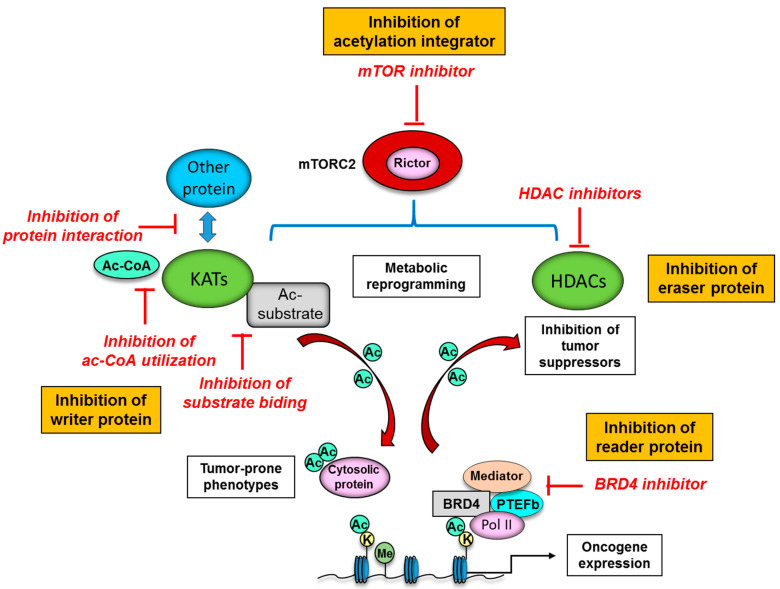Figure 4.
Potential therapeutic strategies to target protein acetylation systems in cancer. The interaction of KATs (writer protein) with other protein could provide specific vulnerabilities for development of small-molecule inhibitors to interfere with acetyl-CoA utilization, substrate binding and interaction with other protein such as β-catenin and HIF. Inhibition of eraser protein or HDAC can eventually reactivate the expression of tumor suppressors, resulting in cell cycle arrest, apoptosis, differentiation, and inhibition of angiogenesis and metastasis in cancer cells. BET (reader protein) inhibitors may target tumor cells without affecting normal tissues with the inhibitors’ preferential binding to super-enhancers, which are non-coding regions of DNA to bind multiple transcription factors and are critical to the expression of oncogenes. mTORC2 is an integrator of protein acetylation systems, and targeted therapies against mTORC2 could be the next-generation therapeutic strategies to interfere with cancer-specific, acetylation-dependent metabolism and epigenetics. Ac, acetyl group; Ac-CoA, acetyl-CoA; BRD4, bromodomain-containing protein 4; K, lysine residue; KAT, lysine deacetylase; HDAC, histone deacetylase; Me, methyl group; mTORC2, mechanistic target of rapamycin complex 2; PTEFb, positive transcription elongation factor b; Pol II, RNA polymerase II.

